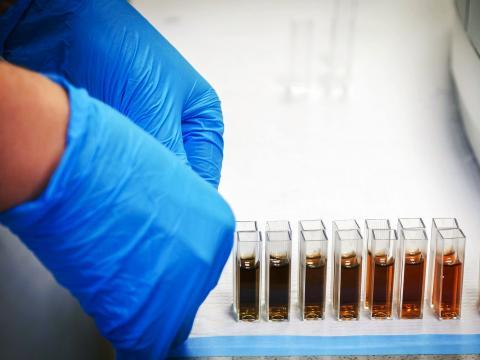
BMC Seminar Thursday 3rd of February at 12:00 on Zoom: https://eu01web.zoom.us/j/66910511982
Speaker: Katrín Möller - University of Zürich - Department of Molecular Life Science
Title: Microglial table manners: a new role for the centrosome in timing and controlling neuronal uptake by microglia
Abstract: During brain development neuronal precursors are generated in great excess. Only neurons that make functional connections survive, while the vast majority undergoes apoptosis and is eliminated by microglia. While much effort has been made to establish how microglia identify their neuronal targets, much less is known about how these cells regulate uptake to maintain their surface area and functional morphology. By using in vivo tracking of phagosomes in optically transparent zebrafish embryos, we recently found that microglia become bloated if they engulf too much. Consequently, these microglia reduce their phagocytic rate, indicating that important intracellular processes must be in place to couple uptake and digestion.
By combining high spatial and temporal resolution imaging with real-time reporters and light-mediated perturbations we found that microglia use microtubule-dependent extensions to capture dying neurons one after the other. This sequential uptake strongly correlates with the movement of the microglial centrosome. Indeed, translocation of this organelle into a microglial cellular extension coincides with phagocytic cup formation and subsequent neuronal removal at the tip of the extension. Interestingly, depolymerisation of microtubules, using a photo-activatable agent, showed that microglia in vivo are robust and highly plastic as they are able to switch to an alternative but equally controlled mode of phagocytosis characterised by directed migration towards dying neurons.
Short bio: Katrin was born in Reykjavik, Iceland. She obtained both her Bachelor’s degree in Biochemistry and Molecular Biology and Master’s degrees Biomedicine, at the University of Iceland. Her Bachelor’s thesis she did at the Steingrimsson’s lab, Biomedical Center, where she investigated the different 5’Ends of TFEB, a transcription factor important for lysosomal biogenesis and autophagy. Following her Bachelor’s degree she did an internship in the same lab, where she studied the transcriptional regulation of different subunits of the v-ATPase in melanoma cells. In 2014 she started her Master’s thesis in the Steingrimsson's lab, where she investigated the role of MITF in regulating starvation-induced autophagy in melanoma. During this time she visited the lab of Prof. Anne Simonsen at the University of Oslo, for 2 months, to get training in several autophagy-related research techniques. In fall 2016, she started her PhD at EMBL (Heidelberg, Germany) in Francesca Peri’s Group, where she studies the complex interplay between intracellular processing and microglia responses to neuronal cell death and injuries. In spring 2018 she moved with Francesca to the University of Zürich – IMLS (Switzerland), to continue her project.
Recently she has developed an interest in the environmental impact research has. In 2020 she joined the Faculty of Science Sustainability committee and established a Greenlab working group to address these problems and compe up with solutions on how to improve our environmental footprint in the lab
